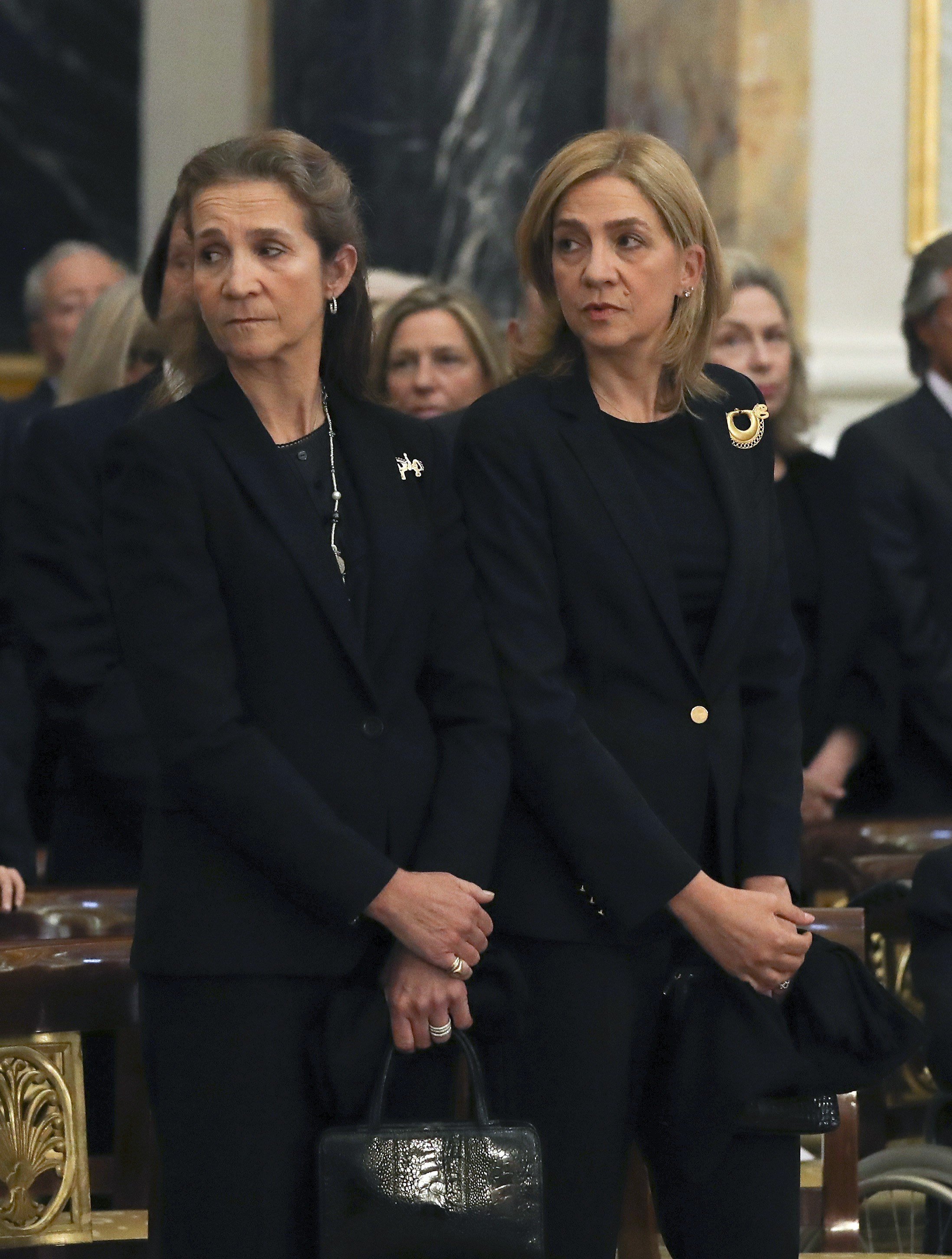The Spanish interior ministry covered all the security expenses for the two infantas, Elena and Cristina, during a week-long trip to Abu Dhabi in February. A week that served the sisters of current king Felipe VI to have a holiday, visit their fugitive father - the disgraced Juan Carlos I - and to get a Covid-19 vaccination shot. The vaccines were "offered" to them, the two women themselves admitted in a statement made today after the scandal broke, but the cost of being accompanied by security staff during their voyage was borne by the Spanish government, according to the newspaper La Política Online.
These security expenses cover the cost of three officers, who were at the service of the infantas for the days that they were in the Middle Eastern state, and daily costs for these personnel which average 800-900 euros a day. In total, between the security service and the board, Spanish taxpayers forked out 33,600 euros for the royal holidays. Although Spain's royal house tried to distance itself by saying that Juan Carlos I's two daughters are not part of the institution, their actions end up having consequences for the public treasury. It should be remembered that Spanish interior minister Fernando Grande-Marlaska admitted last September that the personal security of Juan Carlos I continues to be the responsibility of his ministry - despite the scandal-immersed former king's flight from Spain last summer.
The role of the infantas
Following revelations by digital newspaper El Confidential that the infantas Elena and Cristina had obtained Covid shots while in the United Arab Emirates visiting their father, the two Spanish royals today confirmed that they were vaccinated in the UAE but they justify what happened: "Both my sister and I went to visit our father and in order to have a health passport that allowed us to do so regularly, we were offered the opportunity to get vaccinated, which we agreed to," said a statement signed by Elena and published by El Mundo. The king's oldest sister added that "if it had not been for this circumstance" they would have waited for vaccination in Spain, "when our turn came up".
Since 2014, Elena and Cristina have been officially separated from the royal house, but there is a clear inconsistency: on the one hand, the authorities argue that no explanation for the trip is necessary because they no longer have official roles; on the other, they continue to make use of a state agency which Spaniards pay for. The voice that remains absent from the controversy is king Felipe VI, although he has previously made timid moves against some of his family members to save the institution.
A year ago, he announced the withdrawl of the royal salary of his father Juan Carlos, a total of 194,232 euros per year. This decision in March 2020 followed the revelations alleging that the former king has committed fraud through the Zagatka and Lukum foundations. Earlier, in 2015, the princess Cristina was stripped of her post as duchess of Palma due to her involvement in the Nóos affair, another case of long-running corruption for which her husband Iñaki Urdangarin was and remains imprisoned. Now, there could be a third royal role which faces changes, as princess Elena still holds the duchy of Lugo.
What does the Sánchez government say?
Several members of the Spanish coalition government have criticized that the two royal figures assented to being vaccinated in the United Arab Emirates. Mostly, cabinet members from the Podemos part of the administration, such as deputy PM Pablo Iglesias, equality minister, Irene Montero, and labour minister, Yolanda Díaz.
On the Socialist side, the only criticism so far has been from new territorial minister, Miquel Iceta, who considers it "very poor" that the women took advantage of their "position" to bypass the Spanish vaccination priorities. No explanation has been given, however, from the minister whose department knew of the trip in advance and covered the Infantas' costs. That is, head of the interior ministry, Grande-Marlaska.

